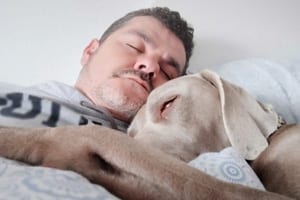 Sleep apnea is a disorder where breathing halts and begins again continuously throughout one’s slumber. The sleep disorder typically falls under one of three categories: obstructive, central, or complex. Obstructive sleep apnea is the result of throat muscles being too relaxed, while central sleep apnea is caused when the brain fails to signal to muscles that control breathing, and complex sleep apnea syndrome is a combination of the two aforementioned conditions.
Sleep apnea is a disorder where breathing halts and begins again continuously throughout one’s slumber. The sleep disorder typically falls under one of three categories: obstructive, central, or complex. Obstructive sleep apnea is the result of throat muscles being too relaxed, while central sleep apnea is caused when the brain fails to signal to muscles that control breathing, and complex sleep apnea syndrome is a combination of the two aforementioned conditions.
Mild sleep apnea may improve through lifestyle choices such as avoiding sleep medications and alcohol, but more intense cases of the sleep disorder will require further treatment.
Positive Airway Pressure Machines (CPAP)
Controlled positive airway pressure uses a machine to pass airflow through a mask worn over the mouth and/or nose. The flow of air opens up airways to engage normal breathing throughout the night. CPAP devices are one of the most common treatment methods for patients suffering from sleep apnea. This type of therapy also eradicates snoring, a frequent sleep apnea side effect.
Oral Appliances
Oral appliance therapy involves the use of removable devices worn during sleep. These appliances also called mandibular advancement devices or MADs, hold the jaw in a position that promotes good airflow and keeps the tongue and mouth muscles out of the way. Many patients prefer mandibular advancement devices to other types of sleep apnea therapy as the appliance is unobtrusive, quiet, and convenient for use and travel. Oral appliances can also be used in conjunction with CPAP machines to make the latter breathing device more comfortable by lessening pressure on the CPAP.
Though you can buy over-the-counter sleep apnea oral appliances, they are not approved by the FDA and may actually do more harm than good. Proper oral appliance therapy utilizes a custom-fit MAD from your dentist created to fit your specific mouth structure and needs.
Surgery
Certain medical conditions that contribute to sleep apnea, such as a deviated septum or enlarged tonsils, may require surgery to resolve the issue. Patients may also seek surgical solutions when other sleep apnea treatments have been found ineffective. Inspire upper airway stimulation, nasal surgery, mandibular maxillomandibular advancement surgery, and uvulopalatopharyngoplasty are common surgeries used to treat sleep apnea.
Don’t let sleep apnea get in the way of a good night’s rest or put you at risk for further health complications; reach out to Dentistry at East Piedmont now to find the right solution for you!


